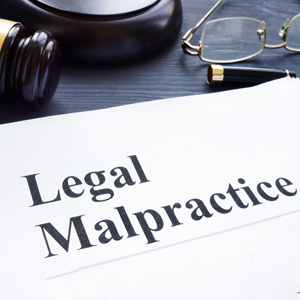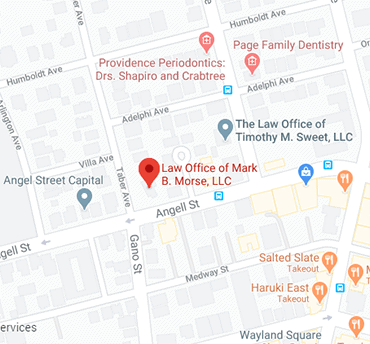Medical Malpractice Explained

- Crucial information about medical malpractice
- Who may be liable in a medical malpractice claim
- The elements that determine a case’s viability
- Possible damages to be recovered from a medical malpractice claim
Medical malpractice is primarily a species of a personal injury claim. The major distinction is that you are claiming the medical provider, a professional, has through his or her lapse in judgment, caused you to be injured. It is not much different in that regard than an automobile accident, in which you are claiming that a driver of the motor vehicle, because of a lapse of judgment has caused you a personal injury. The primary difference with a medical negligence case is the level of proof that is needed to establish that a medical professional is responsible for your injury. The reason that is so is because medical knowledge is very technical, and not necessarily known to the layperson. So, if, for example, we are claiming that your medical professional, a doctor was negligent in his treatment of a patient, we would need to know what a non-negligent treatment of the patient would look like.
Because we are not medical professionals, we don’t have the means by which to say that a particular treatment was formed carelessly or negligently. So, we need another medical professional to say that this particular procedure was not performed within the correct standard of care, and provide specific evidence of how the standard of care was not complied with. In order to bring this claim against a medical professional, you will need that professional opinion in order to establish your case. So, that’s the main difference between that and other personal injury cases. If, for example, you were suing a lawyer, you would need a legal expert to say whether the lawyer complied with the appropriate practice, and so, it’s not different in that regard.
Who Could Be Held Liable In A Medical Malpractice Claim
Primarily the people who were involved with the failure to perform within the standard of care could be held liable for medical malpractice cases. In many instances, that could include the hospital facility where the incident took place, the medical staff who assisted and didn’t do something in accordance with their assigned duties, or the doctor who actually performed the treatment, or neglected to perform the correct treatment. So, all these persons need to be considered during a medical negligence claim. There may also be notions to what we call a respondent superior, in which the employer in a particular situation may be involved. In that sort of case, a hospital might be held responsible as an employer.
The Elements That Determine The Viability Of A Medical Malpractice Claim
Like any other personal injury claim, a medical malpractice claim will be comprised of responsibility, fault, and damages. The difficulties that exist in a medical negligence claim oftentimes also exist in a routine personal injury case. I think what is often magnified in the medical negligence claim is the concept of causation. What that means is that the incident you’re claiming was negligent or inappropriate actually is what caused your injury. When I say it’s particularly so in a medical negligence claim, it’s because when you’re being treated by a physician, it’s because of some sort of injury or disease that you’re experiencing. There’s frequently a question, is this just a continuation, is this just a natural result of your condition that you’re treating for, or is this a new injury that the doctor caused?
Those issues become more pronounced in the medical negligence claim than they would, for example, in a motor vehicle accident claim. That doesn’t mean to say that they don’t occur in a motor vehicle accident claim because it does. If a person has a pre-existing back injury, for example, there’s going to be an issue. Did the car accident further cause damage to your back, or is this something that was just a continuation of the original injury.
Your Ability To Recover Damages Having Signed A Valid Consent Form Prior To The Treatment That Caused Your Injury
The consent form is just one item that is considered in determining whether a viable claim for medical negligence exists. A consent form generally specifies the sort of risk that you are taking when you are undergoing a medical procedure, and states essentially that you understand that these risks exist, and they could occur to me as a result of this procedure, even in the absence of negligence. Still, what that informed consent form does not do is relieve the physician or medical professional of responsibility, if in fact, they performed the procedure negligently.
So even though you may be expecting a risk that something could occur to you as a result of this procedure, you understand that it could occur without negligence. You are not accepting the risk that it is going to occur because the medical professional did something wrong that actually did cause this to occur. So, the short answer to this question is, yes, you can proceed even in lieu of a medical consent form. Whether you will succeed or not will depend upon whether that injury occurred, simply because it was a risk of the procedure and without negligence, or did the injury occur because the professional was negligent.
Potentially Recoverable Damages In A Medical Malpractice Claim
You are able to recover damages for the losses that you’ve incurred as a result of the injury that was caused by a medical professional. If you lost time from work because you sustained an injury that was caused by a medical professional, you are then able to recover for the income that you lost. If you’ve lost earning capacity, if before the injury, you could have been a professional athlete yet after the injury that is no longer available to you, you should be able to recover for the loss of earning capacity. That is the amount that you would have been able to make as a professional athlete compared to what you now have the ability to earn, not being able to undertake that activity anymore.
You should be able to recover for a loss of enjoyment, the activities that you used to be able to do, and that you enjoyed and can no longer perform. If you have a permanent injury, you should be able to recover for every day that you’ve been made to have that injury. There are a host of other claims as well that are all potentially recoverable if you’ve been injured by a medical professional. If you have scarring, for example, that may be a recoverable injury. Essentially, it is not much different than the same sort of elements that you would recover in a typical personal injury claim.
For more information on Medical Malpractice Claims In RI & MA, an initial consultation is your next best step. Get the information and legal answers you are seeking by calling (401) 831-0555 today.

Call Now To See How We Can Help!
(401) 831-0555

